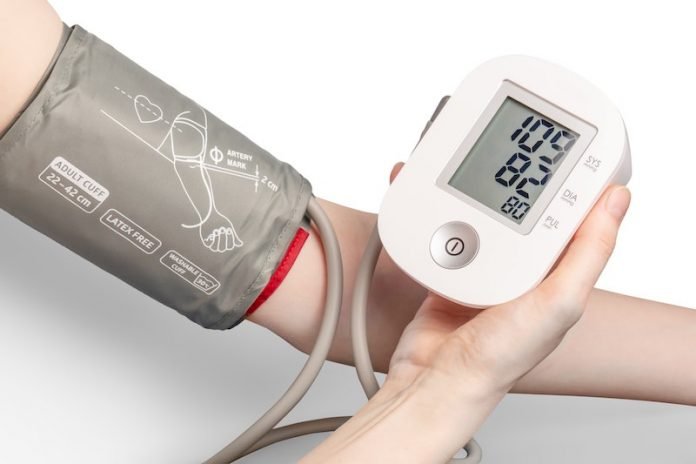
Scientists from the University of Bristol found why so many patients suffering from high blood pressure (known as hypertension) also have diabetes (high blood sugar).
The key is a small protein cell glucagon-like peptide-1 (GLP-1) that couples the body’s control of blood sugar and blood pressure.
The research is published in Circulation Research and was conducted by David Murphy et al.
Previous studies have shown that hypertension and diabetes are inextricably linked, but the real reason was not clear.
GLP-1 is released from the wall of the gut after eating and acts to stimulate insulin from the pancreas to control blood sugar levels. It also stimulates a small sensory organ called the carotid body located in the neck.
In this study, researchers used an unbiased, high-throughput genomics technique called RNA sequencing to read all the messages of the expressed genes in the carotid body in rats with and without high blood pressure.
This led to the finding that the receptor that senses GLP-1 is located in the carotid body, but less so in hypertensive rats.
As the team says, locating the link required genetic profiling and multiple steps of validation.
Researchers never expected to see GLP-1 come up on the radar, so this is very exciting and opens many new opportunities.
People with hypertension and/or diabetes are at high risk of life-threatening cardiovascular disease.
Even when receiving medication, a large number of patients will remain at high risk. This is because most medications only treat symptoms and not causes of high blood pressure and high sugar.
The current findings are really important because by giving GLP-1 we might be able to reduce both sugar and pressure together, and these two factors are major contributors to cardiovascular risk
The researchers are planning translational studies in humans to bring new findings into practice so that patients most at risk can receive the best treatment available.
If you care about diabetes, please read studies about a new drug for diabetic eye disease and findings of common diabetes drugs that could strongly cut COVID-19 death risk.
For more information about diabetes, please see recent studies about daily habits that could effectively prevent type 2 diabetes, and results showing eating before this time may reduce the risk for type 2 diabetes.
Copyright © 2022 Knowridge Science Report. All rights reserved.



